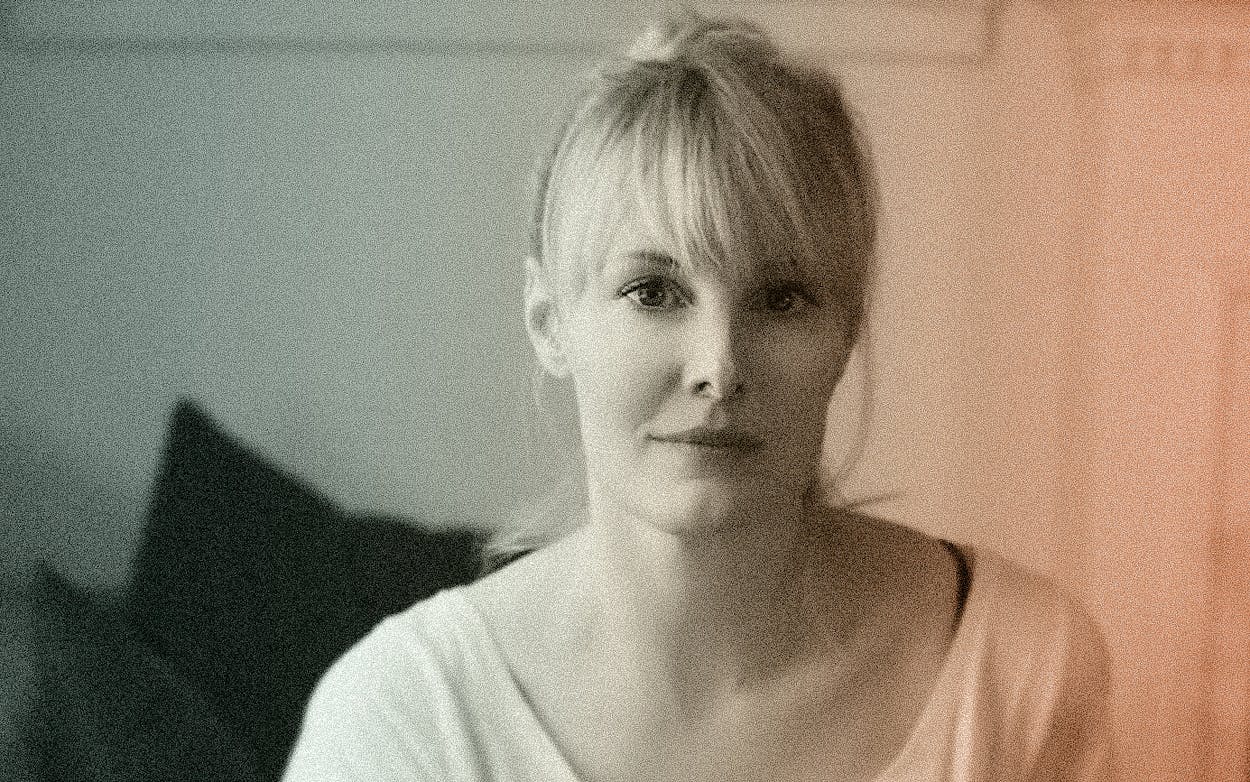Subscribe
With its release last month, Kimberly King Parsons’ short-story collection Black Light went from being one of the year’s most-anticipated literary debuts to being one of the year’s best-reviewed literary debuts. The Los Angeles Times wrote, “Occasionally a debut collection lands with such a wet, happy thud that you immediately start imagining the rest of the writer’s long career.” Indeed, Black Light is really just a set-up for Parsons’s debut novel, which she’s completing now for release next year and says is about the intersection of Texas, motherhood, and LSD. Parsons, who was born in Lubbock and raised in Plano, earned a bachelor’s degree in English and a master’s in literary studies (emphasis on the works of William Faulkner) from the University of Texas at Dallas. She later moved to New York City, where she earned an MFA in fiction from Columbia University and served as editor-in-chief of Columbia: A Journal of Literature and Art. She lives in Portland now, but the shadier, weirder side of Texas is at the heart of nearly every story in Black Light. On this episode of the National Podcast of Texas, she explains why Texas remains central to her work, discusses the micro-complexities of sentence formation, and what it means to write literary fiction in 2019.
Three takeaways from our conversation:
1. In part because her children make it difficult for her to toil away endlessly in a writing room hoping for bolts of inspiration, Parsons often uses as a starting point a few lines that popped into her head and felt strong enough to memorize.
“I don’t do so much writing on the computer. It’s always almost in my head before I ever get to this screen. And if I’m in the car, and I come up with something and can’t remember it later, then it probably wasn’t very good. But if you have two or three sentences worth remembering, when you sit down you can refine those two or three. And since I’m always working sentence to sentence—building a new one by always looking at what came just before to inform what’s coming next—if I can get three, then maybe I can sit down and write for an hour and sort of ride that feeling until I get to the end of that section.”
2. Original drafts of a handful of the initial stories in Black Light didn’t clearly identify their setting. Parsons revised them to clarify they take place in Texas.
“It’s always been Texas in my head. There was a time, mostly when I was at Columbia, I wanted to write these towns that were like Anytown, USA, because I thought people can project their own experience onto it. But I think that’s wrongheaded because what I’ve learned since then is that people really want specificity, and they want a particular viewpoint. I also felt maybe in 2005 that Texas was too familiar or seemed boring cause it’s just what I grew up with. So while I worried about ostracizing people who weren’t from Texas, now I know that’s totally ridiculous because everyone seems to really respond to Texas because there’s just such a mythos associated with the state.”
3. Although Texas plays such a big part in her stories, and she often rents a house for weekends in Austin to get away and write, she says she’s more than content to make her home in Portland.
“I love that there’s trees, mountains, and woodland creatures. I can see five mountains from my kitchen window. And I grew up in the Plano area, and then New York for thirteen years, so I hadn’t spent a lot of time in nature. In Texas, I would wander around Austin and West Texas a lot, but it would just be so oppressively hot that you’re just trying not to pass out. And then in New York, it’s sort of this beautiful urban hellscape. It winds up, I just like fresh air.”






